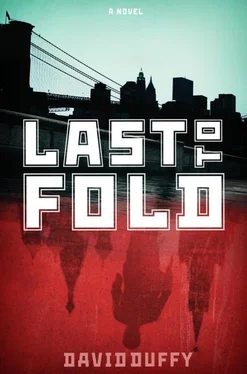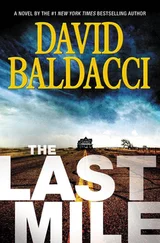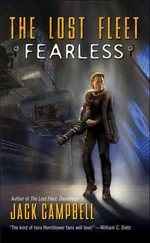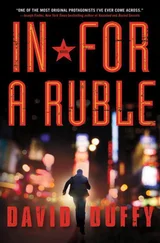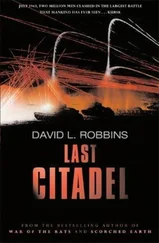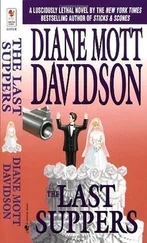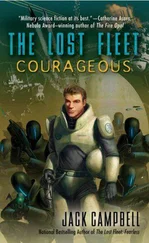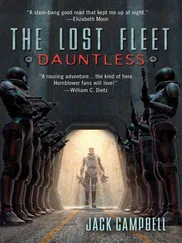We were on our way to work in the forests yesterday, Mama and I, in a large group of prisoners. It had snowed overnight. It was cold, below freezing. I remember willing the sun to rise higher in the sky to provide a little warmth.
Our group slowed when we saw the line of men being led toward Sekirka—the ancient church that has become the killing chamber for the monsters that run this hell on earth. We all knew what the queue meant, and we hung our heads in sorrow and shame—sorrow for our comrades, shame for ourselves and our country.
When I looked up, I saw the shock of red hair in the middle of the shuffling group. I didn’t want to believe it at first, but then he turned, and despite the distance, there was no doubt. Papa! We had not seen him since the night of our arrest.
I pointed him out to Mama, who broke into tears. She yelled after him, but he could not hear, she was weak from hunger, and he was too far away. A guard told her to shut up, but she yelled again—“Filya! Filya!”
The guard hit her with his rifle. The line of condemned men moved up the hill toward the church. I watched my father disappear through the doors without hearing Mama call him for the last time. I have never felt such helplessness and misery.
The guard poked me with his gun, and I helped poor Mama to her feet. He shoved us back into line with the others.
There was nothing we could do. Our hearts in pieces, we were led off to work.
I can’t understand how anyone, Bolsheviks, Stalinists—we’re all Russians!—can do this. My grief is my own, but I’m surrounded by thousands of others with stories just like mine.
We are in an unimaginable place run by incomprehensible people. I go to sleep each night asking God to take me to the eternal underworld—it can’t be any more sorrowful than this.
I put down the letter and went to the freezer for the vodka. I hadn’t had enough to numb the pain after all.
No one can say how many people died in the Gulag. Estimates run into the millions. I now knew for certain one of them was my grandfather. I have the record of his arrest, with his wife and daughter, on November 26, 1937, the first year of Stalin’s Great Terror. I have a record of them at Solovetsky—the cradle of the Gulag, a network of islands in the White Sea and the Soviet’s first forced labor camp— in 1938. I have an old photograph of the sign that welcomed new arrivals—WITH AN IRON FIST, WE WILL LEAD HUMANITY TO HAPPINESS. I know Solovetsky’s inmates worked and died in its forests, timber mills, fisheries, and factories. When the islands had been largely deforested, the camps were incorporated into the larger Belbaltlag network, whose inmates built the White Sea Canal. Those camps were vacated in 1941, ahead of the German advance, and I have documentation of my mother’s transfer to Norillag in Siberia, where she stayed until her release in 1946. My grandparents disappeared from the record. Until now.
My mother’s name was Anna. She was nineteen, Eva’s age, when she was arrested. Her parents were artists, members of the Russian avant-garde, committed revolutionaries, friends of Malevich, Rodchenko, Olga Rozanova, and the rest. She studied music. She was a singer, a soprano, and apparently an accomplished one, even in her teens. There was no legal reason for their arrest, just some trumped-up charge about working to undermine the revolution. Stalin had set quotas, and the NKVD dutifully fulfilled them, just as other agencies produced economic results to meet the five-year plans. The economics were often fiction; the arrests were real—1,575,259 people in 1937 and 1938 alone. The Cheka shot 681,692 of them.
I stopped at the stereo to turn up the volume. I was listening to Mahler, his Ninth Symphony, perhaps his most prayerful piece, which he wrote after discovering his wife was sleeping with Walter Gropius. He was my mother’s favorite composer, or so I’ve been told. I prefer Prokofiev—I like percussion—but tonight it seemed a little prayer couldn’t hurt.
I’d done my best to bury my past. When Iakov got me out of the Gulag and into the Cheka, he also procured a new passport, one that bore no record of my birthplace or incarceration. Over time, serving in the Cheka enabled me to shed the fear of rearrest that haunts many former prisoners, even those who were now “clean” and led a normal life, or as normal as was possible in Soviet Russia. That was all blown up during the Disintegration when Lachko extracted his revenge by informing Polina about my time in the camps. Horrified that my taint would rub off on her, terrified that I would return her to the shambles of insecurity that was her childhood, she did everything she could to use my shame against me. She succeeded beyond her greatest expectations.
It took many more years, the dissolution of the Soviet state, and my finally moving away from Russia before I came to realize that I would remain imprisoned by my past, just as sure as I was an inmate of the Gulag, until I confronted it head-on. I also had the vague idea that the one thing I could give Aleksei was the truth about his family. How and when I would pass it on was an open question, but I figured I’d find a way if and when the time came. First I had to unearth the story.
That’s not easy. The Gulag doesn’t give up its secrets without a fight. You have to know how to dig, and you need help. Even then, many are buried too deep to ever be found. There’s also an emotional price. Working on oneself, the early Bolsheviks had called it—trying to rewire human psychology to adapt to new social goals by altering one’s identity. “The new structure of political life demands from us a new structure of the soul,” the de facto Bolshevik propagandist Maxim Gorky wrote in 1917. Reconstructing the history of my mother’s life was the psychological equivalent of dismantling the soul I structured when Iakov plucked me from the Gulag and I entered the Cheka. Lonely work, but maybe someday I’d be able to tell somebody about it.
Mahler faded to silence. Most symphonies rise to great final crescendos. Not Mahler’s Ninth. He hints and feints, starts the climb once or twice, but backs off into deeper contemplation. In the end, as Bernstein put it, he simply lets the strands of sound disintegrate. I’ve always felt that fourth movement comes as close as anything to capturing the tragedy of the human experience—in a few bars of music.
The vodka glass was empty, too. I didn’t need more, but I got a refill anyway, stopping on the way to play Miles Davis and Gil Evans’s Sketches of Spain . I went back to my papers as Miles sounded the first few bars of “Saeta”—literally, “heart pierced by grief.”
I never knew the man with the funny name who was my father. I know how he met my mother in Norillag, a few months before she was released for the first time in 1946. He was an NKVD officer, on the staff of Lavrenty Beria, head of the secret police and Stalin’s chief executioner. Her beauty was intact. I have a letter he wrote attesting to that fact. He could not approach her there— zeks were nonpersons, untouchables—but as soon as she got out, he found her in Moscow.
This was a risk on his part. Release did not mean rehabilitation in the eyes of the state, and fear ruled the populace. Former prisoners were shunned, then as now, even by family and old friends. My father took the chance, and they fell in love. He also paid the price. They had two years together, but when she was taken away again in 1948, in a wave of rearrests, he was picked up, too. She got a second ten-year sentence and a trip to Dalstroy, a complex of camps in Kolyma in far northeastern Siberia. He was sent to Steplag in what is now Kazakhstan. The fact that he was an NKVD officer, the son of a prominent Chekist and friend of Felix Dzerzhinsky, founder of the Cheka, didn’t matter. Or maybe it did. He was released after two years, in 1950. By 1951 he was again wearing an NKVD uniform.
Читать дальше
